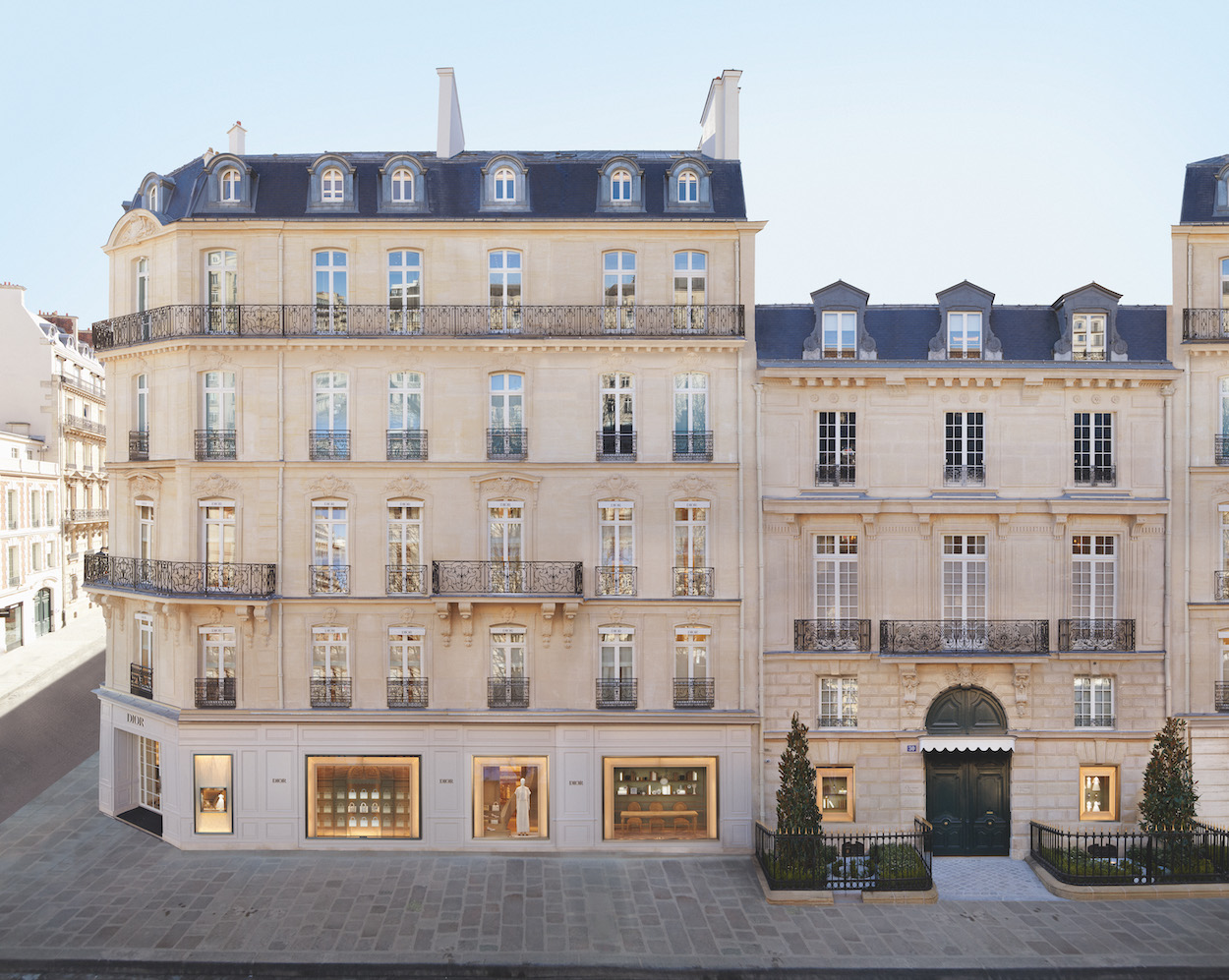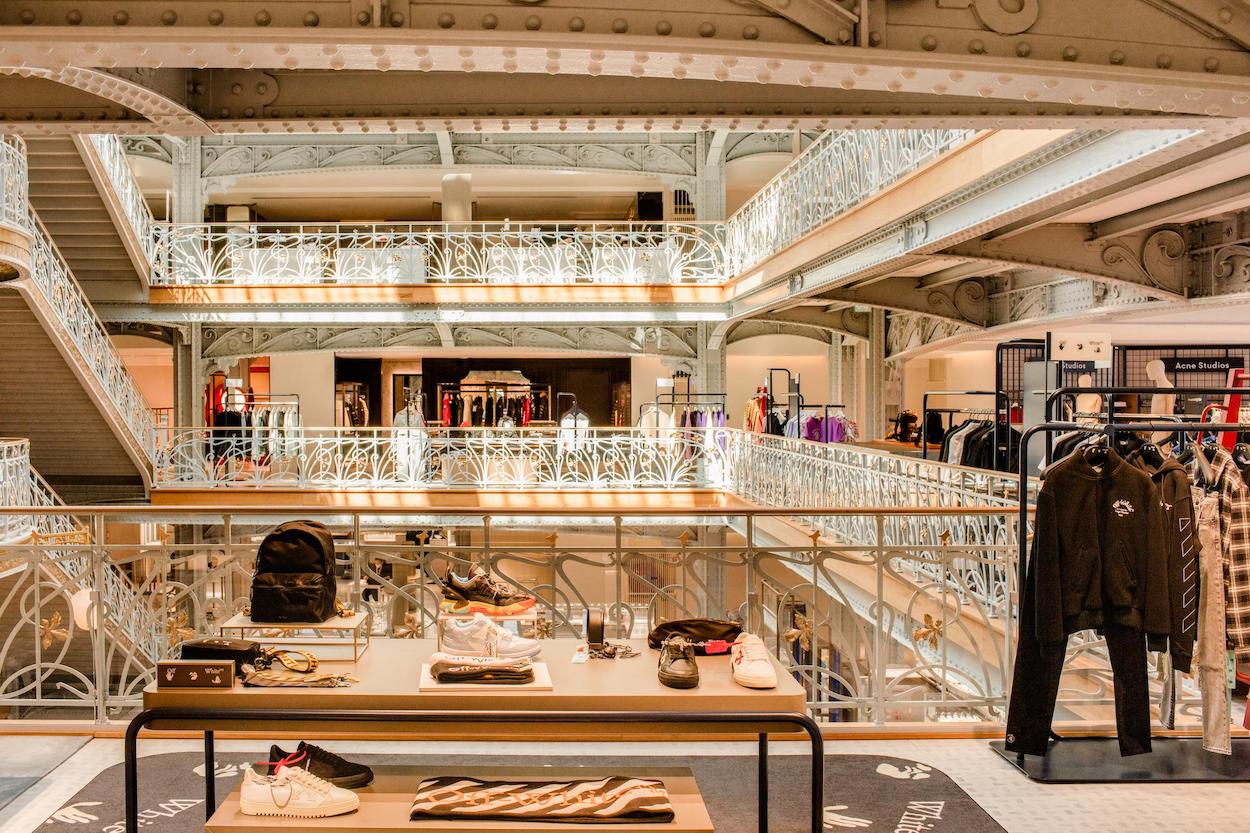In 1946, Christian Dior founded his maison in a stately Parisian hôtel particulier at 30 Avenue Montaigne that eventually became the French label’s top-selling flagship. It closed in 2019 for a sweeping makeover, which entailed the LVMH-backed maison acquiring six contiguous historic buildings and combining them into a 108,000-square-foot emporium offering a wholly integrated Dior universe designed by luxury retail’s go-to interior architect Peter Marino.
Besides offering womenswear, menswear, accessories, homewares, jewelry, and beauty products imbued with Dior’s savoir faire, the flagship abounds with fanciful details like a luminous sculpture by Paul Cocksedge, suspended in an airy atrium, that mimics Christian Dior’s sketches falling from his desk. An adjoining museum recites the label’s history through the lens of its esteemed creative directors such as Yves Saint Laurent and John Galliano, while the on-site restaurant is helmed by French culinary breakout star Jean Imbert. There’s even a standalone hotel room that allows guests the chance to keep the store open all night for exclusive 24/7 access. “We wanted to build a kind of Luna Park of the senses,” Pietro Beccari, CEO of Dior, tells Business of Fashion. “Someone coming here, if they loved Dior they will love it even more. If they didn’t, they’ll be convinced about the value of this brand.”
LVMH continues to make ambitious forays into experiential retail, which they see as a key strategy for brick-and-mortar businesses to circumvent an evolving retail landscape that’s increasingly pivoting to e-commerce. Expanding its luxury travel portfolio has been a focus, from the expansion of Bulgari-branded properties to Fendi’s pop-up cafes to the acquisition of high-end hotel group Belmond.


